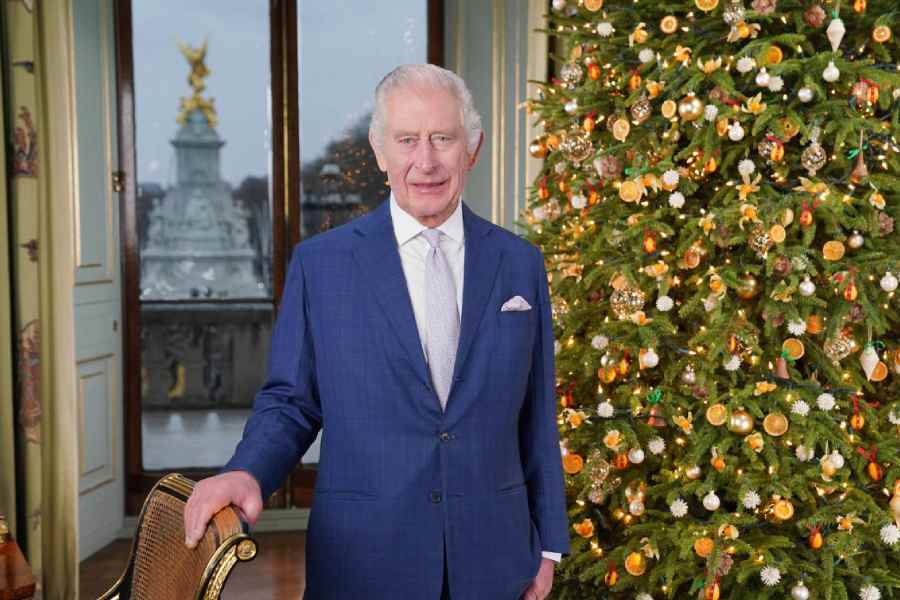Tough times
The royal family is going through a particularly difficult phase following the cancer diagnoses of King Charles III and the Princess of Wales. The late queen, who was on the throne for 70 years and believed in being seen, provided the country with stability by just being there. Following her death in September 2022, the succession of King Charles III was remarkably smooth. He has been to India many times but one of his advisers revealed to me that he was hoping to visit the country next year for the first time as king. That is now unlikely.
The king’s younger brother, Prince Andrew, is a discredited figure so he cannot take over some of Charles’s duties. Andrew’s ex-wife, the Duchess of York, to whom he remains close, is also coping with breast and skin cancer. Charles’s younger son, Prince Harry, is leading a separate life with his wife, Meghan, in California, and there is no sign of his elder brother, William, and him being ready to settle their differences. William was expected to stand in for his father but he naturally wants to devote more time to Kate and their three children.
Kate’s cancer announcement has genuinely shocked people. She is only 42. “We now need some time, space and privacy while I complete my treatment,” she pleaded in a video message. Kate has become the new Diana. Papers will provide detailed daily coverage because Kate’s cancer story has become a profitable circulation booster. Under the guise of shaming the trolls, wild conspiracy theories on social media are being reported at length.
True pioneer
It is remarkable how often Rabindranath Tagore’s poems come up at funerals in Britain. Sir Michael Palin read an extract from Gitanjali — “Into that heaven of freedom, my Father, let my country awake” — at Baroness Shreela Flather’s cremation in Berkshire. Shreela chaired the fundraising committee for the Memorial Gates, which were built to remember Indian, African, Caribbean and other Commonwealth soldiers who fell in the two World Wars. King Charles III sent a long condolence message and made everyone laugh by joking about Shreela’s persistence: “I remember with particular fondness and admiration, she never took no for an answer.”
In an environment-friendly touch, Shreela’s family chose a wicker coffin. Paul Flather said his mother described herself as a “Hindu atheist” but she liked the Gita. This is why her younger son, Marcus, read an extract from the Bhagavad Gita. Shreela was the first Asian woman to enter the Lords in 1990. One of her friends, Earl Howe, said: “Never before had the House of Lords witnessed a woman in a sari.” Howe remembered how, in 1996, Shreela took descendants of viceroys or British rulers of India — Reading, Mountbatten, Lytton, Elgin, Clive and others — to India. Howe said the peers “treated her from the outset as an equal”. As mayor of the Royal Borough
of Windsor and Maidenhead, she once referred, tongue-in-cheek, to
the queen and Prince Philip, who occupied Windsor Castle, as
“fellow residents”.
Calcutta connection
A number of British stars, such as Jeremy Irons, Judi Dench and Olivia Colman, are supporting the Calcutta charity, The Hope Foundation for Street Children, which is marking its 25th anniversary this year. The charity, which was founded by an Irish humanitarian, Maureen Forrest, is launching a new fundraising campaign on April 12 to coincide with the International Day for Street Children.
Foreigners might wonder why such a charity is needed when India is apparently on track to become the world’s third-largest economy. “Economic wealth — particularly in Kolkata — does not get filtered down to the street children and their families,” Shelley King, the actress and ambassador, said. Incidentally, Colman (who played Queen Elizabeth II in Netflix’s The Crown ) visited Calcutta in 2018 on discovering that “her great-great-great grandmother, Harriot, was born in a remote Indian village and travelled by ship from Calcutta to England in 1811”.
Tongue in cheek
The Indian high commissioner in London, Vikram Doraiswami, made a speech at a business conference in London last week, in which he thanked Keshav Murugesh, the new chairman of the CII UK India Business Forum, by saying: “I’m reminded of something my favourite author PG Wodehouse once wrote in dedication, ‘To my dear stepdaughter Leonora, without whose help and advice this book would be finished in half the time.’ So I have a distinct sense that Keshav has also conveyed to me the same message that without my advice and guidance, he would have done twice the work.”











